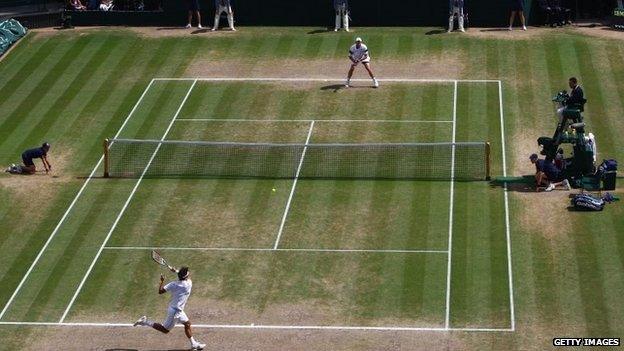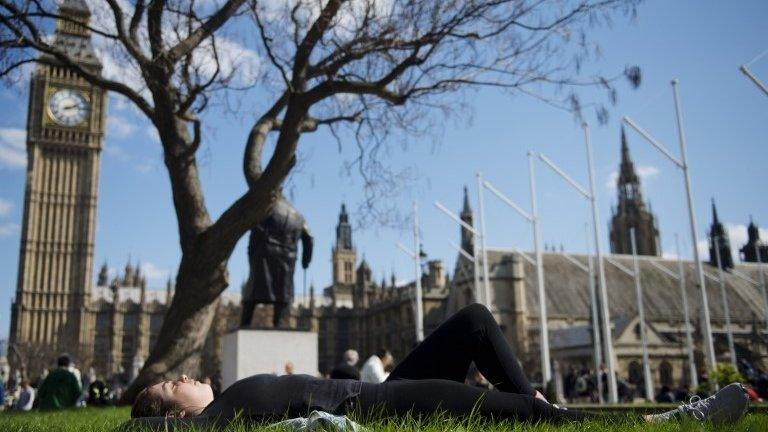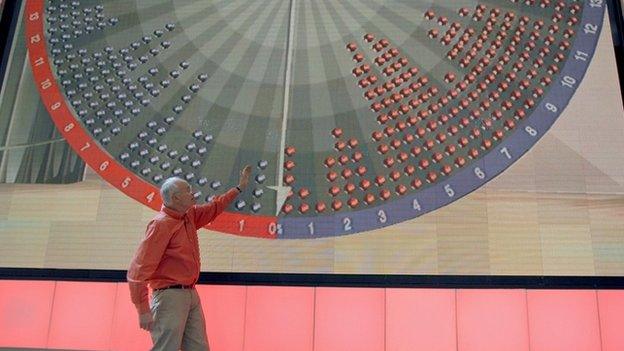Election 2015 Pollwatch: Campaign entering fifth set
- Published
Some excitement was provoked by several polls published over the past week - from Opinium, Survation and Ashcroft - suggesting four point Conservative leads.
However, in the same week, ICM registered a five point drop in Conservative support compared with their poll one week earlier.
I still find it difficult to discern any significant change in the polls that points to an emerging decisive lead by any party.
This Sunday, Opinium registered a one point Conservative lead, 34% versus 33%, down from their four point Conservative lead of the previous week. Survation featured a three-point Conservative lead - 33% versus 30% for Labour - compared with their one point Conservative lead one week ago. YouGov suggests a two point Labour lead, 34% compared with 32% for the Conservatives.
In these latest polls, the Lib Dem share hovers around 9%, with UKIP ranging between 13% and 18% and the Greens settling around 6%. It still appears to me that we are locked into one of those Wimbledon tennis finals destined to go a full five seats.
The Conservatives have signalled that they will focus on the economy in the final stages of the election campaign. It used to be the case that optimism about the future of the economy was a key element in the fortunes of any government party.
It still is but today things are a bit more complicated: it's not just about "is the economy improving?" but also "am I sharing in economic growth?"

Will there be a winner at the end of this lengthy encounter?
In October 2014, Populus found 14% of respondents agreed that there was economic growth in their area and they were sharing in it. In February 2015 a very similar question in an Ashcroft poll found that figure had risen to 19%.
I believe these figures help explain why the government has struggled to receive any political reward for the economic upturn.
Why are they not surging to 40% or 50% support in the polls, leaving every other party choking on their dust? Because too many people don't feel part of any recovery.
All of which poses a real challenge to the Conservatives because it appears to reduce the potency of their persistent and substantial poll lead as the best party to manage the economy.
In this election, issues surrounding the cost of living have widened the traditional interpretation of the imperative "it's the economy stupid", because the "cost of living" plays to the direct experience of many voters in a way that "the economy" never could.
All parties currently seek to persuade voters that they can lead the country out of an austere period of national debt and stagnating personal incomes.
The cynics might observe that the failure of the three largest Westminster parties to achieve anything approaching a commanding lead in the polls so close to the election is largely due to their failure to convince millions of voters that they have an answer to the problem that plays such a dominant part in their lives.
- Published19 April 2015

- Published28 March 2015
